[China] The young Chinese segments (18-29 years old) are the most supportive of the three-child policy. 56% are from this segment are in favour of this policy change.
- Release date: Jul 17, 2021
- 2466 Views
However, 62% of all Chinese surveyed are not in favour of the three-child policy:
1. The main hurdles to having more children are financial constraints, lack of support services (e.g. child care) and concern about the heavier responsibility.2. Across gender, there is a significant difference in opinion – more Chinese men are in favour (47%) of the policy compared to women (28% in favour).
3. The majority (76%) of the Chinese surveyed are considering having 1 to 2 child(ren). Only 7% will consider having 3 children. June 18th, 2021, Hong Kong SAR – CSG INTAGE – one of Hong Kong’s leading marketing research firms – has teamed up with DataSpring to conduct a quick poll to determine the sentiments amongst Chinese towards the three-child policy. Interestingly, amongst those in favour of the three-child policy (38% of total adults), younger Chinese 18 to 29 years old are supportive of this policy, compared to older respondents aged 30 to 40 years old. 56% of those in favour are youths compared to adults 30 to 40 years old (44%). (Chart 1). “The survey reflects the changing values of youth in China. They have grown up with a prosperous China that have grown their GDP on average of 6% – 10% in the last 20 years. The optimism is reflected in their support of this policy. They have very different values and feel very proud about the growth of China. It will be very interesting to see how this new generation will shape the future growth of China. They are definitely an important segment to track in terms of their attitudes and preferences,” said Simon Tye, Executive Director, CSG INTAGE.
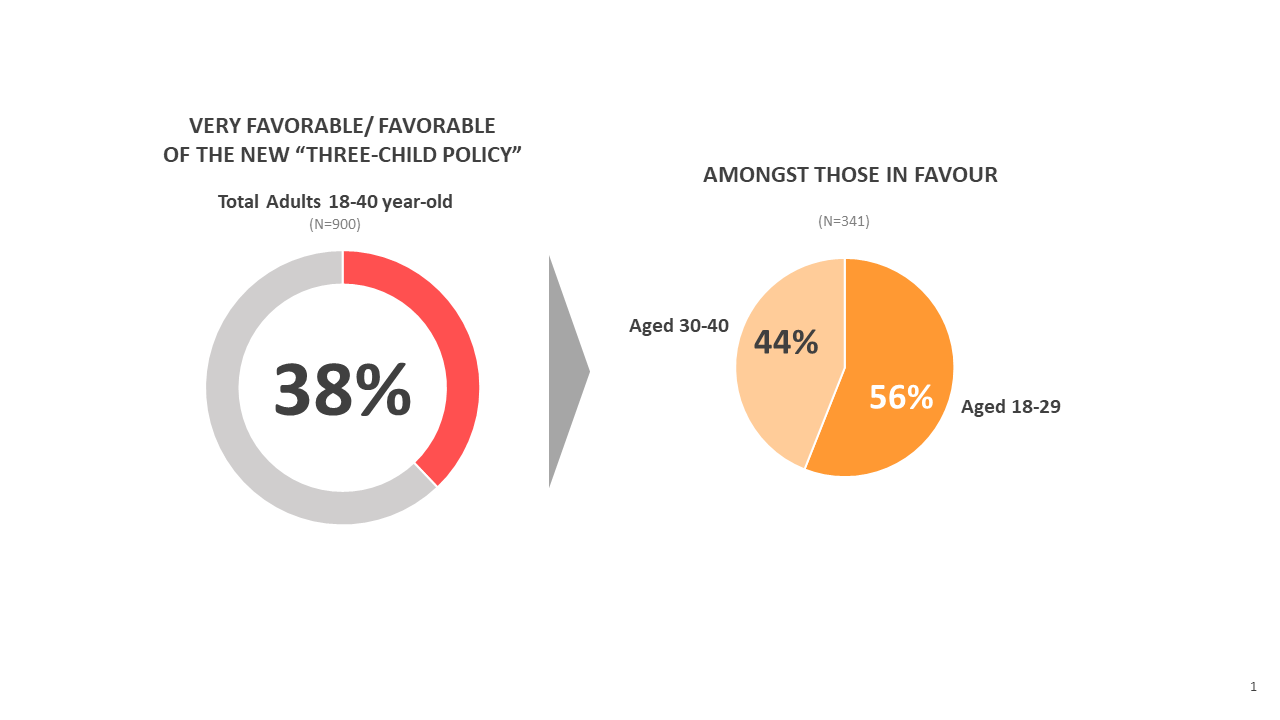
There is a significant difference between men and women.
Chinese women were significantly less supportive of the policy with only 28% in favour of the policy. In contrast, 47% of Chinese men interviewed are in favour of the policy.There was also a difference in opinion by household income.
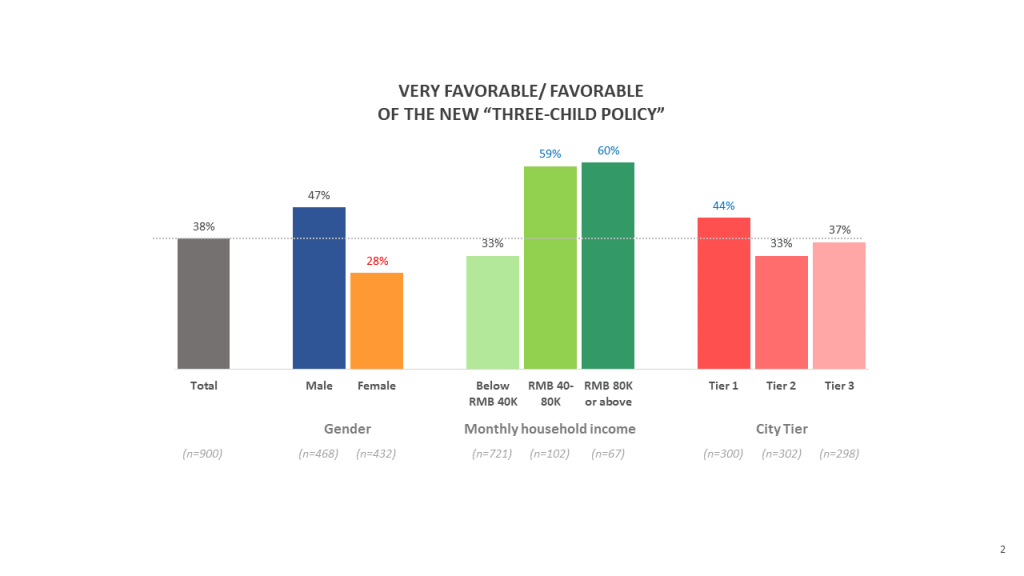
62% of Chinese aged 18-40 years old are not in favour of the three-child policy.
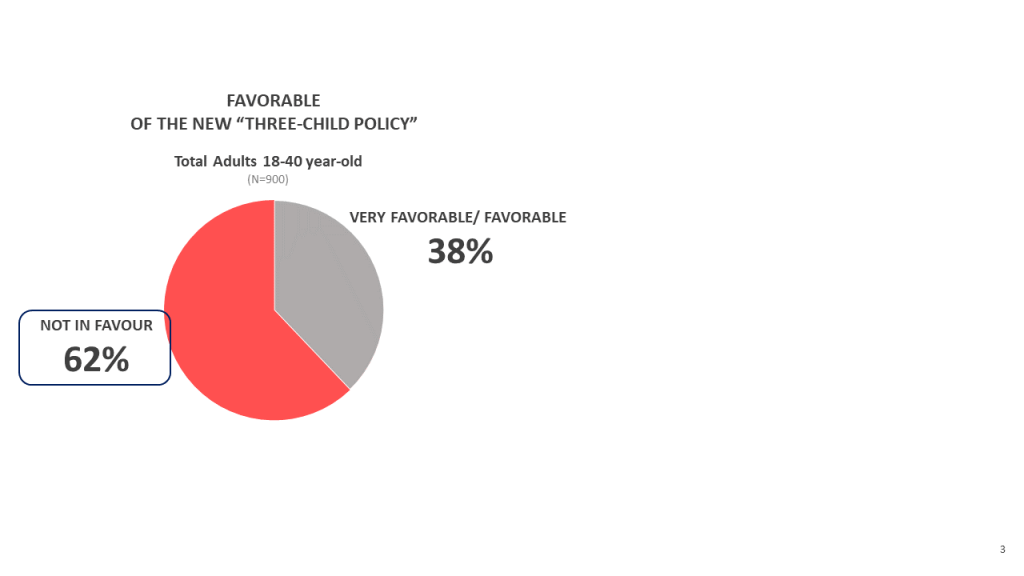
Achieving the goal of the three-child policy will be a challenge as only 7% are currently considering having 3 children.
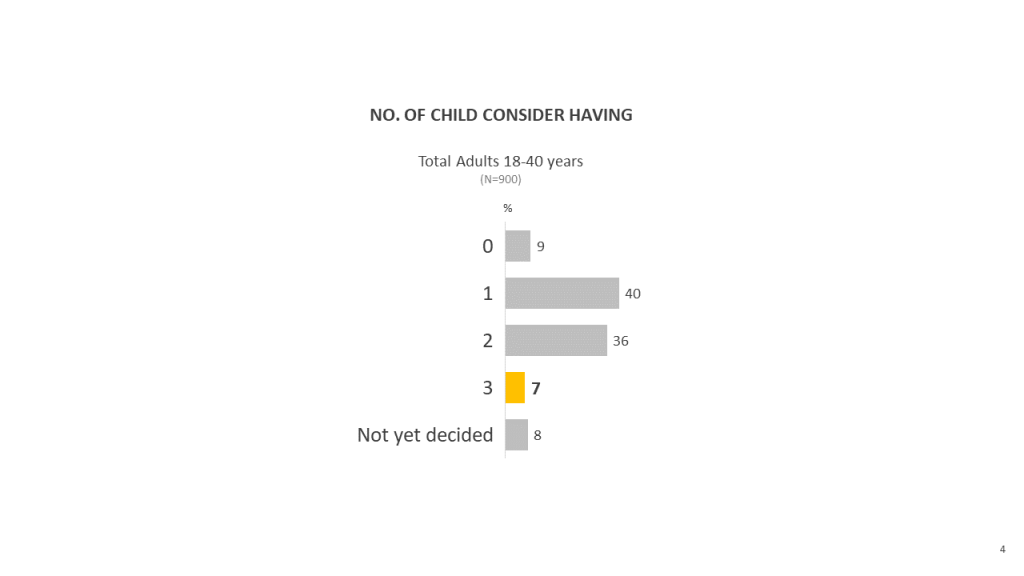
Lack of resources, fear of responsibility and Chinese women’s reluctance to become a full-time homemaker need to be addressed to encourage more support for the policy.
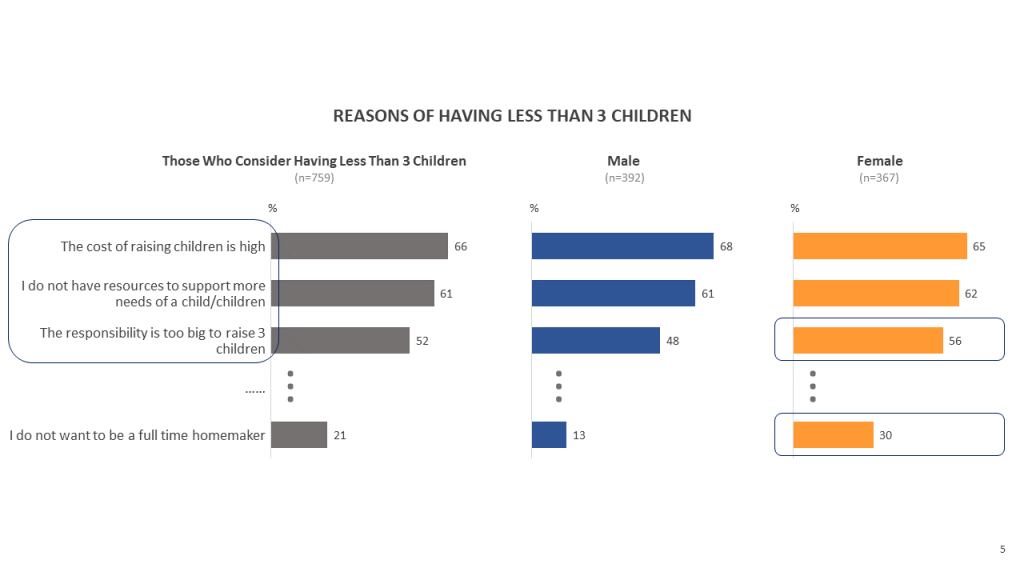
Among the minority who are considering having 3 children, the factors influencing their decision are the joy of parenting and the desire to support the government policy.
For the minority (7%) who will consider having 3 children, the top 3 factors influencing their decision are providing a perfect environment for children (55%), the joy of parenting (49%) and to show their support for the policy (43%). (Chart 6)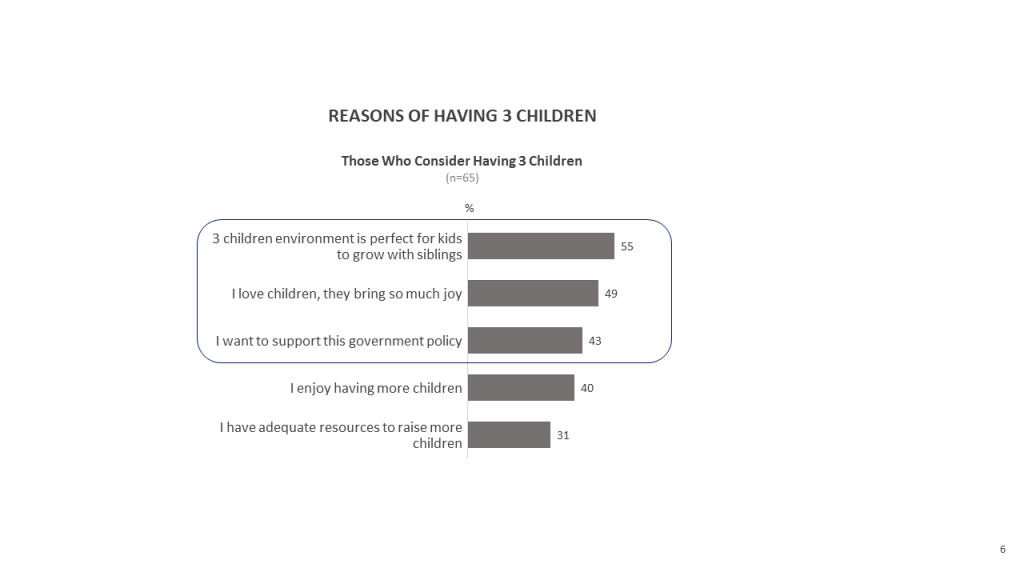
About the Survey
The survey was conducted using the online methodology of 900 respondents across different regions and cities in Mainland China in early June 2021. The demographic quota was defined to ensure good representation of the Chinese population segment aged 18-40 years old living in Tier 1 to 3 cities. The questionnaire is 5 minutes in duration.-

Author profile
CSG Hong Kong
CSG is a leading marketing research firm established in Hong Kong in 1982 offering comprehensive research services to clients in diverse industries. It is also a marketing research pioneer in Greater China. The company has further expanded from providing regional to global marketing research services through connection with GIA (Gallup International Association) and WIN (World Independent Network of Market Research) networks. In 2013, CSG became a member of the INTAGE Group, the leading market research organisation in Japan and ranked 9th largest globally.
 Global Market Surfer
Global Market Surfer CLP
CLP